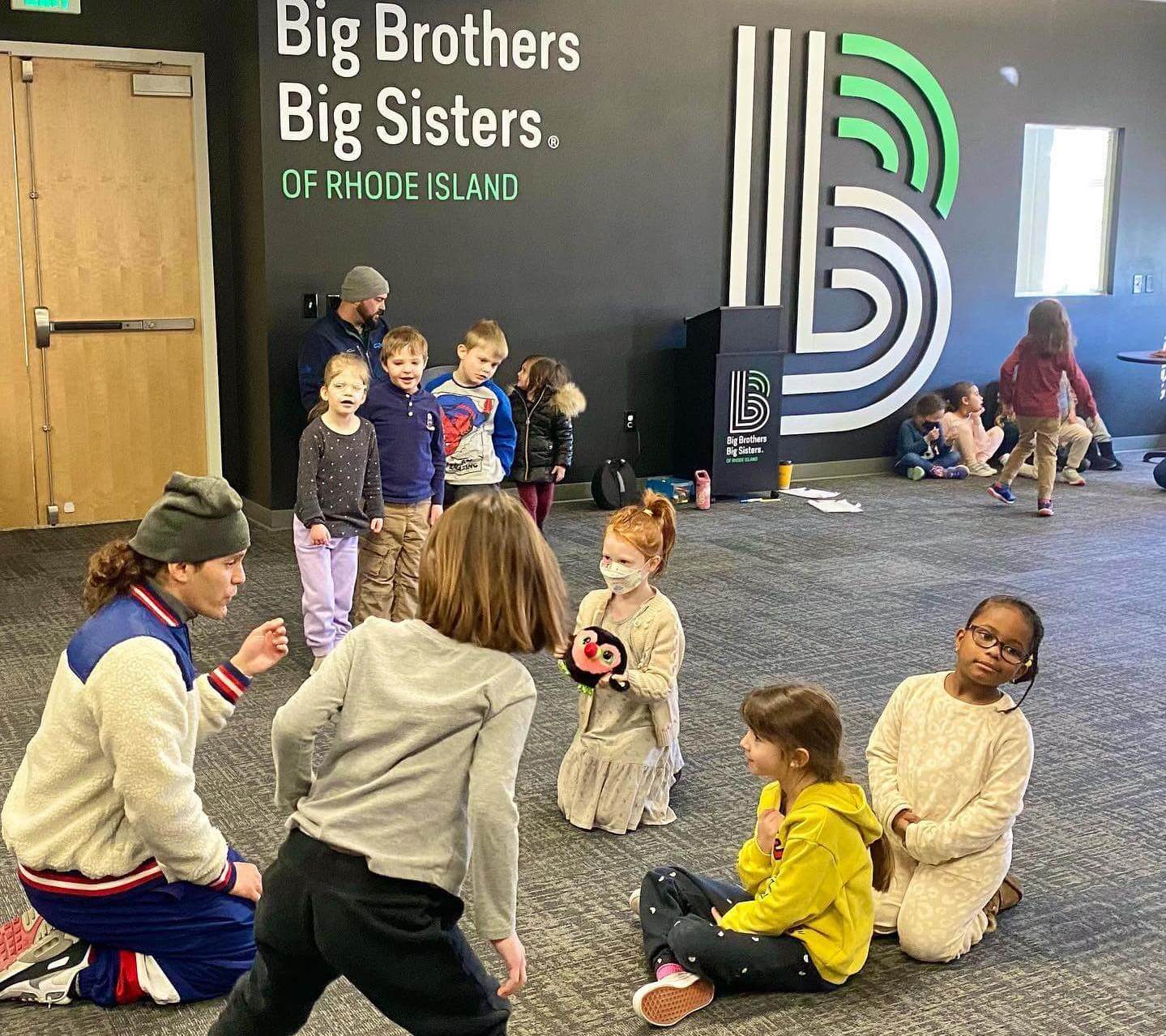By partnering with parents/guardians, volunteers, and others in their community, Big Brothers Big Sisters of Rhode Island is accountable for each child in their program achieving: higher aspirations, greater confidence, better relationships, avoidance of risky behaviors, and educational success. Shaw’s has supported this nonprofit organization through the GIVE BACK WHERE IT COUNTS Reusable Bag Program.
Tell us about Big Brothers Big Sisters of Rhode Island.
Big Brothers Big Sisters of Rhode Island (BBBSRI) was founded in 1966. The organization was initially considered Big Sisters of Rhode Island. A group of local businesswomen saw the need for a youth mentoring program for girls in Rhode Island. Boys already had Big Brothers of Rhode Island, but no similar programs were offered to girls. We refer to this group of women as our Founding Mothers. In 2011, the organizations combined and changed their name to Big Brothers Big Sisters.
At our core, our work is to create one-to-one mentoring relationships that ignite the power and promise of youth. We do this by pairing young people with caring adults who have raised their hands to say they want to be another consistent pillar of support for them. BBBSRI currently serves young people between the ages of 7 and 25.
At our core, our work is to create one-to-one mentoring relationships that ignite the power and promise of youth.
What services do you provide to the community?
Through our mentoring programs, we do off-site mentoring, where an adult and their Mentee go into the community and do community-based events. Our minimum requirement for this activity is about four to six hours each month. Usually, two hours twice a week is what it boils down to.
On top of that, we also provide something called the Family Empowerment Fund, which is essentially wraparound services for not just our mentees who participate in our program but also their families. This fund assists with clothing, utility bills, food, temporary shelter and other items. The point is that if there are pressing concerns with basic needs at home, these worries must be alleviated to be present and participate in some of these relationships. We do our best to help ease some of that and be a support system for them so that they can be actively engaged in our mentoring relationships.
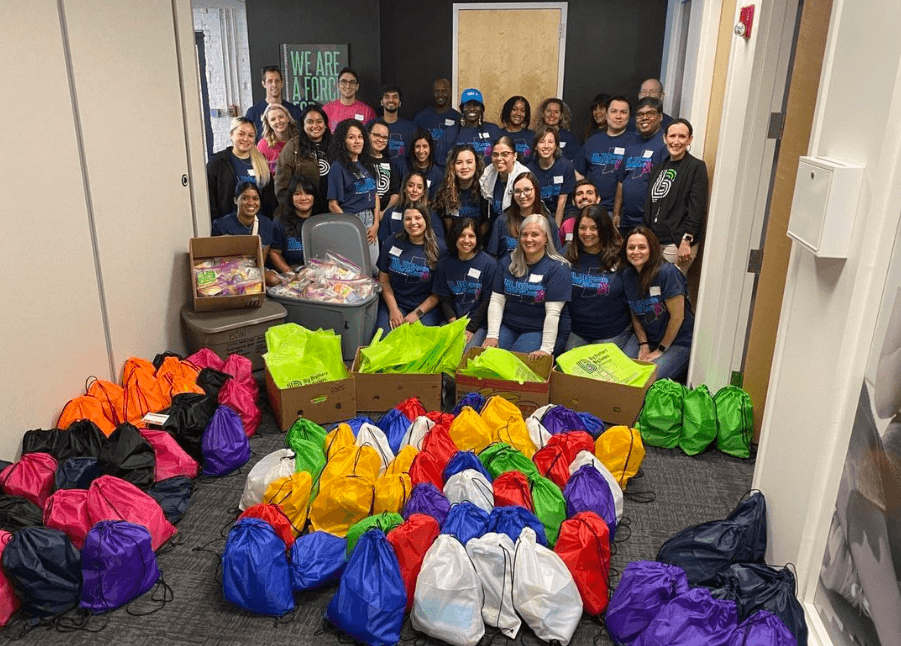
What sets your organization apart from other nonprofits in your community?
What separates our program is the strategic decision to focus on quality over quantity regarding our Mentor-Mentee connections. A lot of other mentoring programs don’t have the same philosophy.
The people at the heart of these programs are called case managers. Usually, their caseload, on average nationwide, is close to the upper 80s in terms of relationships that they manage per individual. Because we focus on quality, our case count is around 65 per case manager. We truly put time into these mentoring relationships to create lasting connections.
What separates our program is the strategic decision to focus on quality over quantity regarding our Mentor-Mentee connections.
For example, at Big Brothers Big Sisters, across all agencies, we measure the length of a match as a direct result of the match quality. As a federation nationwide, the average length of a pairing lasts about 13 months. Here in Rhode Island, we have many pairings that far exceed that, with 36 months as our lifetime average. Not stretching our case managers too thin allows them to pay extra attention to the mentee-mentor relationship and their parents. They can focus on the child’s living arrangement and connect with mom, dad, stepmom, stepdad or whoever is in their family arrangement. With this philosophy, it is vital we focus on managing relationships effectively and not use the number of matches as a driving factor. We are prioritizing that the length of these matches exceeds our expectations.
There have been studies that show any relationship shorter than 12 months can be harmful to a mentee. A lot of these kids are forming relationships. They are new to having someone super persistent and present, so having that only last for a short time can be detrimental to their ability to form healthy relationships.
We take a lot of pride in how we do what we do. Big Brothers Big Sisters of Rhode Island openly shares this because it’s a stance of our morals and ethics in operating our program.
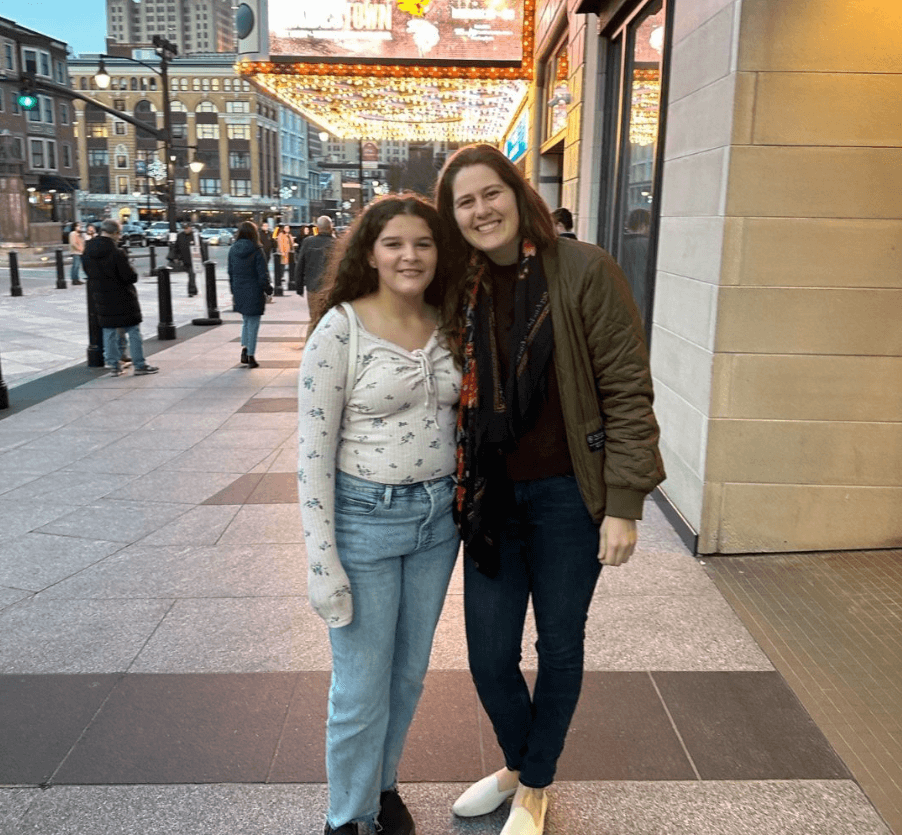
Tell us a story that illustrates your organization’s good work.
Recently, one of our mentees, through our Family Empowerment Fund, was able to attend camp. As I stated earlier, this fund helps provide basic needs, but it also offers enrichment opportunities for mentees. These are opportunities that they may not have experienced otherwise.
For the sake of privacy, I’ll call this mentee James. He particularly had been experiencing a lot of difficulties at home in terms of relationships. James was facing some big life changes at a single-family home. His mom told us that she felt James was a bit more reserved. He was having difficulty building relationships with other kids and had an overall disengagement with adults, lacking any respect for authority.
Thanks to our Family Empowerment Fund, James benefited from going to camp. His mother wrote us a wonderful letter after the fact, talking about how much the camp had pushed James to get out of his comfort zone and start to feel comfortable. He was able to talk more with others and build relationships. Being around kids his age really helped. She said there was a noticeable difference in his confidence and how he viewed himself.
She expressed her gratitude for how that singular experience helped change his attitude toward his life back home. He became excited to continue going to camp and engage in other opportunities that put him in the mix with other kids. These are the types of things that we strive to facilitate to help create real change in someone’s life.
What is your most outstanding achievement or contribution to the community?
Achievement happens on a personal level; our impact is empowering young people and inspiring their trajectories. We engage with over 200 young kids every year, but the need is much greater than that.
What we’re proud of is the impact that we’re able to have largely with the relationships that we see, the ones these kids have in their families, schools and aspirations. Many of the kids we serve are hungry for an opportunity to be in proximity to other experiences; whether it’s going skiing or going to camp, there’s a plethora of things. It’s hard to explain, but it’s a singular thing that we’re so proud of because it’s happening on small scales but at a high frequency across all the relationships.
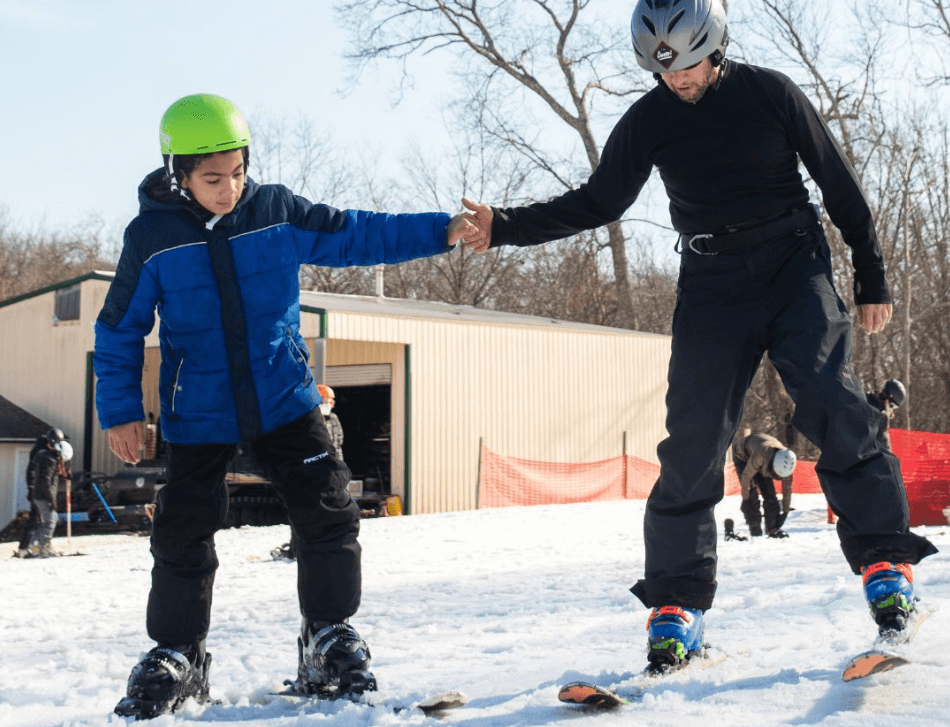
What do you want people to know about Big Brothers Big Sisters of Rhode Island?
We’re currently in a stage of reintroducing ourselves to our audience in the community. People speak about mentorships and mentoring relationships on a high level or vague sense. If I could communicate something to the public, it is that mentorship happens every day. There is no specific silhouette of a person who can be a mentor, and the threshold to make a significant impact in someone’s life is, fortunately, and maybe unfortunately, not as high as people would think. At large, people tend to think about mentorship as heavy or hard. We’re here to say it happens on a much smaller scale. It truly takes Little to be Big.
Many of our mentees tell us that some of the more meaningful experiences with their mentors happen when they are tagging along for errands. The mentees get overwhelmingly excited to be there and sit in the car, passing the time together. I think this speaks to how we think about our relationships and experiences. For example, with my younger brother, I never tell him, “Let’s go to the park so I can have a pivotal conversation with you about where your life is going.” That’s not how relationships or life works.
Many of our mentees tell us that some of the more meaningful experiences with their mentors happen when they are tagging along for errands.
When you’re in the car heading to do something like a grocery run, kids get in an environment where the pressure is off, and they can speak freely about the things on their minds. At its core is where impact happens. Although, as adults, we tend to overlook that a bit. But those pivotal moments are in the small things, and the kids we serve are overwhelmingly raising their hands to say I want those small moments.
How will you use the funds received from the Shaw’s GIVE BACK WHERE IT COUNTS Reusable Bag Program?
We largely devote the money we raise through most of our partnerships directly to the program.
Most people know that Big Brothers Big Sisters has the agency side of the mentoring and the kids we serve. But then we have something called the donation center, our partnership with Savers to do upcycling and recycling of clothes. This program covers 70 percent of all operational costs. It’s the umbrella of Big Brothers Big Sisters of Rhode Island.
Is there anything you would like to add?
We are fortunate that we’re one of the few agencies that have a partnership with Savers, which allows us to operate a large-scale donation center that accepts unwanted clothing, linens, small household items, and books! What most folks don’t know is that:
- The donation center supports 70% of Big Brothers Big Sisters of Rhode Island’s annual operating income, which in turn supports all of our impactful one-to-one mentoring relationships throughout Rhode Island.
- It also raises more than $150K for local Rhode Island and Massachusetts nonprofit organizations, and
- Keeps 3-5 million pounds of waste from local landfills.
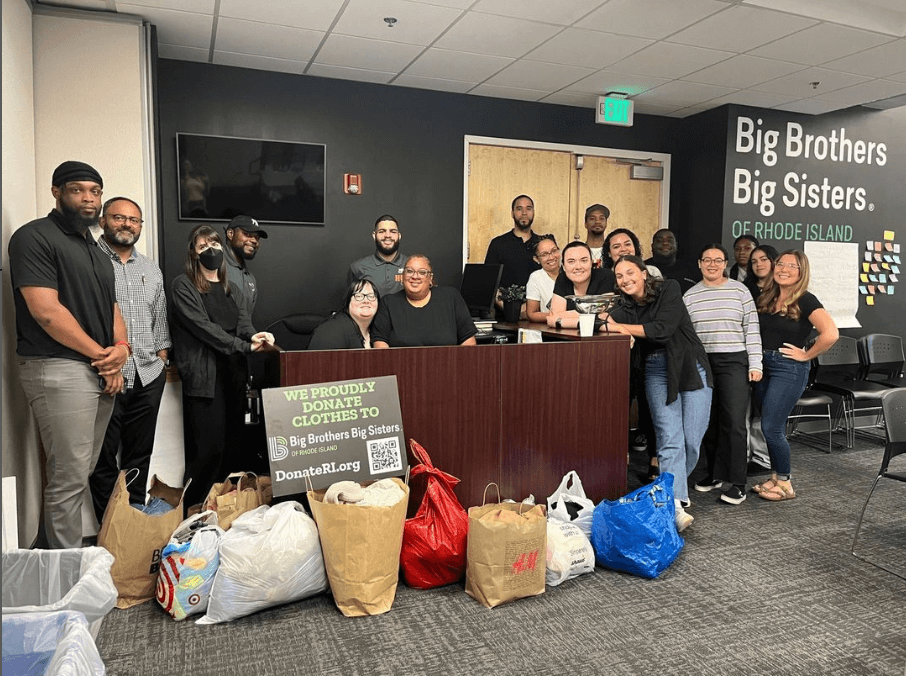
Here in Rhode Island, all the Savers contribute. When you drop clothes off, no matter what, it benefits our partnership. And when people donate, they know it’s helping something in their backyard.
We also do FREE at-home donation pick-ups through this program. We have six trucks that go into every City and Town throughout RI weekly. It’s super easy to schedule – just call or go to our website! We also have 100+ donation bins set up to help generate funds. The clothing donation program is a big piece of what we do and how we’re able to fund our program.
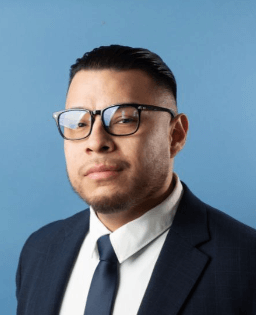
Published December 13, 2023.

